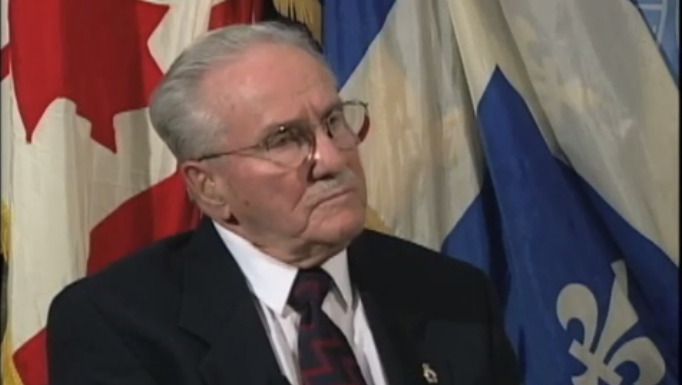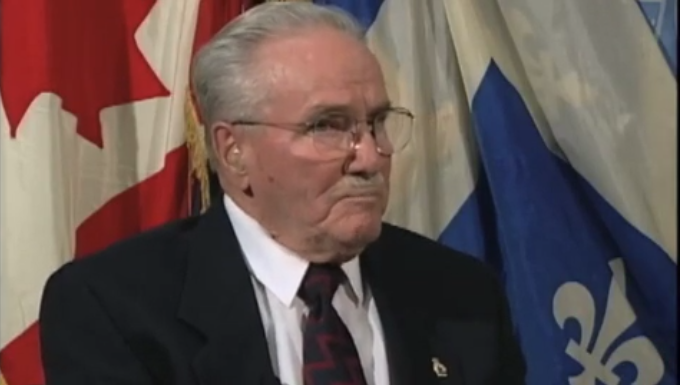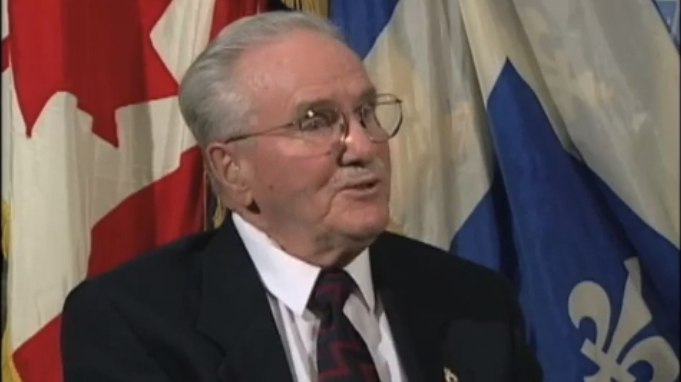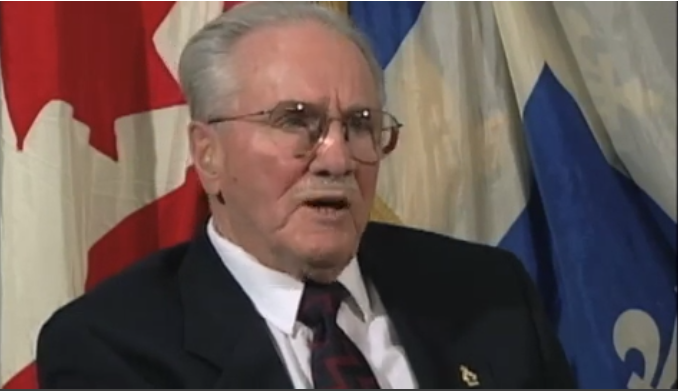Luftwaffe attacks
Heroes Remember
Luftwaffe attacks
Transcript
Description
Mr. McCrindle describes training in England, air raids in Glasgow, the air raid shelters in Glasgow and the morale of the Scottish people.
David McCrindle
Mr. McCrindle's father immigrated to Canada in 1911 and served during the First World War with the Black Watch of Montreal. He stayed in Scotland after the war and returned to Canada when David was two. Mr. David McCrindle quit school during the Depression as he couldn't afford the tuition. He worked for a Jeweller for $6.50 weekly and in June 1940 joined the Non Permanent Active Militia (NPAM) on nights and weekends. On January 9, 1941, his 19th birthday, he joined the "Woodstock Detail" and trained in Woodstock, Ontario. Mr. McCrindle went to Britain and trained as a signaller. He participated in the Italian Campaign and returned to Canada after the war.
Meta Data
- Medium:
- Video
- Owner:
- Veterans Affairs Canada
- Duration:
- 02:43
- Person Interviewed:
- David McCrindle
- War, Conflict or Mission:
- Second World War
- Location/Theatre:
- Europe
- Branch:
- Army
Related Videos
- Date modified:






